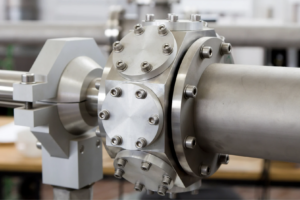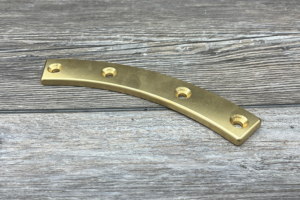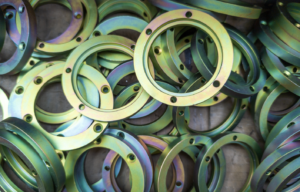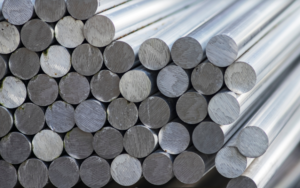At Approved Machining, precision is not just a standard; it's a commitment we uphold in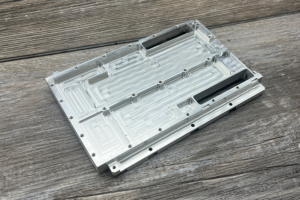 every project we undertake. Our expert machinists are adept at adhering to the tight tolerances that our customers require. However, it's important to recognize the trade-offs associated with stringent design choices. Specifying excessively tight tolerances can lead to increased costs, extended lead times, and, in some instances, parts that may not be machinable at all.
every project we undertake. Our expert machinists are adept at adhering to the tight tolerances that our customers require. However, it's important to recognize the trade-offs associated with stringent design choices. Specifying excessively tight tolerances can lead to increased costs, extended lead times, and, in some instances, parts that may not be machinable at all.
In this guide, we’ll explore how you can optimize your design for manufacturability, precision and value, ensuring you receive the best possible outcome for your CNC machining projects.
Table of Contents
Understanding Tolerances in Precision Machining
Tolerances in CNC machining will vary significantly based on the dimension or feature being controlled. In many instances, our CNC machine shop can achieve extremely tight tolerances, such as holding holes for press-fit hardware to ±0.0005 inches. However, more complex features, such as true position relative to three datums, typically allow for tolerances of approximately ±0.002 inches.
These figures serve as guidelines, and in certain cases, we can achieve even tighter tolerances. Yet the key consideration when specifying precision tolerances is their impact on machining complexity and product pricing. As they become tighter, production costs typically rise due to several factors, including increased machining time, additional inspection requirements and a heightened risk of scrapped parts.
Designs that incorporate tolerances that are unnecessarily tight can lead to unexpectedly high prices and extended lead times, and may even result in parts that cannot be produced. By limiting the tight tolerances in your design to only those that are essential for fit or function, you can ensure the cost-effectiveness of your project and limit RFQ surprises.
Why Opening Tolerances Boosts Your Project’s Efficiency
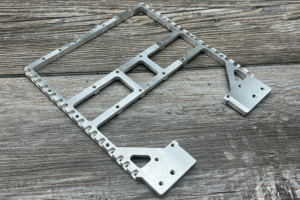 In specific applications, particularly in industries such as medical, military, electronics, and semiconductors, tight tolerances are necessary for functionality or assembly. However, at Approved Machining, we frequently observe that some features are assigned tolerances that exceed what is required for their intended purpose.
In specific applications, particularly in industries such as medical, military, electronics, and semiconductors, tight tolerances are necessary for functionality or assembly. However, at Approved Machining, we frequently observe that some features are assigned tolerances that exceed what is required for their intended purpose.
When we receive designs with tight tolerances that could potentially inflate the cost, we proactively reach out to our customers and recommend relaxing those tolerances to streamline production. Typically, they find that these adjusted designs still fulfill all functional requirements, which leads to significant cost savings and quicker turnaround times.
For instance, one recent project presented a challenge: the design included extreme flatness tolerances of 0.005 inches over a 24-inch span, with the machining process removing approximately ¼ inch from the entire surface. After careful analysis, we informed the customer’s engineering team that achieving these tolerances was not feasible due to the material's tendency to bow and flex during manufacturing.
Our recommendation to produce the part from two separate pieces prompted initial hesitation from the engineering team. However, after a collaborative discussion, they recognized that this new approach would be beneficial. The revised plan was not only cost-effective but also reduced lead times without sacrificing functionality. Ultimately, we successfully machined the part after they adopted our suggestion, demonstrating the value of collaboration.
Collaborate With Us Upfront for Optimal Results
At Approved Machining, we believe in building strong partnerships with our customers. If you have questions or concerns about tolerances in your design, we encourage you to consult with us early in your project. With our extensive experience analyzing a wide variety of machined part designs, we can quickly offer suggestions that can keep your lead times in check and minimize costs while preserving functionality and intent. Knowing your project’s timeline, desired budget, and application requirements from the start allows us to provide the guidance you need to make informed decisions.
Ready to take the next step? Request a quote today and partner with us for your next CNC machining project.

